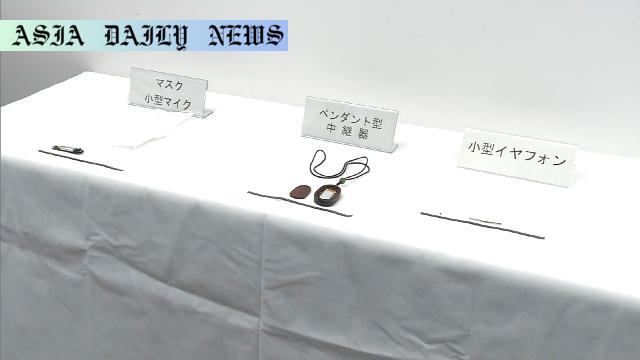TOEIC Cheating: Tokyo police uncover systematic scheme involving advanced tech, suspected collaborators, and false identities.
- Police in Tokyo discovered systematic TOEIC cheating involving 12 examinees.
- Suspects used advanced equipment like smart glasses, earpieces, and face masks.
- A Chinese national, Wang Likun, arrested and suspected as key perpetrator.
- Investigations proceed to identify more collaborators in Japan.

Background and Discovery of Cheating Scheme
In an unfolding story that has raised significant concerns about the integrity of standardized testing, Tokyo police have revealed the existence of a systematic cheating scheme during the Test of English for International Communication (TOEIC). This case highlights the cunning use of advanced technology and the possibility of a network of collaborators engaged in fraudulent practices.
What makes this case remarkable is the extent to which examinees allegedly coordinated their efforts to outsmart exam security protocols. Police confirmed that individuals involved in the scheme were outfitted with miniature earphones no larger than 3 mm across, pendant-style repeaters, and other devices. These instruments allowed answers to be transmitted covertly during the test. Such technological sophistication underscores both the high stakes attached to scoring well on English proficiency exams and the ingenuity applied to bypass rules.
Wang Likun, a 27-year-old graduate student from Kyoto University, is at the center of these allegations. Wang’s alleged roles included wearing smart glasses and a masquerading face mask equipped with microphones to relay answers to his accomplices. Arrest warrants have been issued for him concerning participation in multiple TOEIC exams under false identities, with one notable instance in Tokyo’s Nerima Ward. Officials remain tight-lipped, as neither Wang nor the other individuals involved have provided verbal statements during interrogations.
Details of Alleged Systematic Planning
Further revelations suggest that this was no impulsive undertaking. Police indicated that at least 12 Chinese nationals benefitted from Wang’s attempts to relay answers. Strikingly, the suspects were all registered as living at a single address in Nakano Ward. Investigators are exploring the possibility that the planning may have included additional unidentified collaborators based in Japan, ensuring that materials like devices and guides for use were pre-arranged.
The systematic nature of what transpired is highly unusual. With precise communication tools and detailed instructions, the scheme reveals flaws in TOEIC’s test security policies. Test locations, deemed neutral grounds for international standards assessment, must now reconsider their posture towards possible advancements in cheating technologies.
Broader Implications for Standardized Testing
This incident sends ripples across educational circles. TOEIC, widely revered for its role as a benchmark for linguistic proficiency, is likely to bolster inspection measures. Authorities expressed concern over how such cases erode the public’s confidence, particularly those operating in the education and recruitment sectors.
Not only is this breach of ethical conduct troubling for the exam organizers, but it also sheds light on the broader issue of the commercialization of test preparation and its link to organized cheating. Demand for high TOEIC scores—whether driven by job prospects or immigration purposes—lays fertile ground for individuals or groups promising unfair advantages. Such practices can diminish fairness and integrity overall while setting problematic precedents for future candidates.
Towards resolution, Tokyo police continue their investigation, expanding focus to examine whether individuals or entities involved in exam preparation services could be aiding students in unethical ways. Efforts to detect broader conspiracies will likely include financial data scrutiny, equipment supply chains, and digital communications. Their goal remains not only identifying collaborators but ensuring standardized examination credibility in years to come.
Conclusion
Ultimately, the ability of targeted efforts like those revealed during Nerima Ward operations mean educational institutions and test administrators must begin preparing in earnest. Enhancing surveillance techniques alongside employing verification-AI software in exam hall environments will bridge gaps faced globally where cheating enters technological sophistication. Systemic cheating left unresolved raises damaging precedents concerning other foreign credential governance.



Commentary
Technological Sophistication and Its Role
The Tokyo cheating scandal underscores how evolving technology is becoming both a blessing and a curse. Devices like micro-earphones and smart glasses, designed for comfort, efficiency, and general improvement of daily tasks, are now being weaponized for nefarious purposes. This sets a dangerous precedent. If such technology continues to fall into the wrong hands it becomes harder to differentiate innovation serving productivity from cynical exploitation.
Accountability Begins at Institutional GapsThis